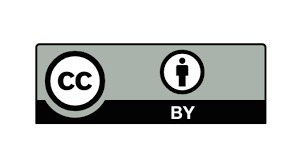Estudio correlacional entre la modalidad de educación pública o privada y el estilo de aprendizaje
Estudio correlacional entre la modalidad de educación pública o privada y el estilo de aprendizaje
Main Article Content
There has always been a big discussion about the difference between public and private education regarding many topics of learning as the methodology, philosophy, preparing students, and in relation to this article, the different strategies employ students to acquire and strengthen their learning. The identification of learning styles and how the student develops in the university environment is of great importance to the adequacy of the pedagogical practices of teachers and the construction of micro-curriculum subjects that make up the academic curriculum of the program. In order to create a better learning environment, this research identifies learning styles of students of the academic Bachelor of Mathematics, Faculty of Education, Arts and Humanities UFPS, framed in the theory of model Kold. We conclude that the predominant style in the study population was followed by the pragmatic and thoughtful finally assets and theoretical respectively. It ends with the application of the tests of independence and correlation of Spearman, finding high relationship between pragmatic and thoughtful styles within the model Kold, but no relationship between social class and learning styles.
Downloads
Article Details
Alonso et al. (1994: pág. 104). Características de cada estilo según Alonso C, Domingo J, Honey P (1994), “Los estilos de aprendizaje: procedimientos de diagnóstico y mejora”, Ediciones Mensajero, Bilbao, pp. 104-116.
Cazau Pablo (2001), Estilos de aprendizaje http://www.galeon.com/pcazau/guia_esti01.htm (consultado en enero 2002)
Chalvin Marie Joseph (1995), “Los dos cerebros en el aula”, TEA Ediciones, Madrid, 1995.
Chavero Blanco (2002). Hipermedia en Educación. El modo escritor como catalizador del proceso enseñanza aprendizaje en la Enseñanza Secundaria Obligatoria http://med.unex.es/Docs/TesisChavero/Indice.html (consultado en septiembre 2002)
Chevrier Jacques (2001) Le style d’apprentissage : une perspective
historique.http://www.acelf.ca/revue/XXVIII/articles/02chevrier.html#h-7 (consultado en enero 2001)
Curry (1987). Integrating concepts of cognitive or learning style: A review with attention to psychometric standards. Otawwa, ON: Canadian College of Health
Dunn, R., Dunn, K. And Price, G. (1985) Manual: Learning Style Inventory. Lawrence, KS: Price Systems.
Eric Jenssen (1994) Unlocking The Code: Learning Styles. Brain Based Learning and teaching. USA : Turning Point Publisher; 1994
Estilos de aprendizaje y perspectivas de enseñanza. Descargado de: http://www.monografias.com/trabajos12/losestils/losestils.shtml–112K.
Felder R. (1996), Matters of Style. ASEE Prism, 6(4), 18-23 (December 1996).
Garza, R. y Leventhal S. (2000) Aprender como Aprender. Mexico: Trillas.
Hunt,( 1979), en Chevrier J., Fortin, G y otros, 2000.
Jenssen Eric. (1994). Unlocking the Code: Learning Styles. Brain Based Learning and teaching. USA: Turning Point Publisher.
Keefe James (1988) Aprendiendo Perfiles de Aprendizaje: manual de examinador, Reston, VA: Asociación Nacional de Principal de Escuela de Secundaria.







